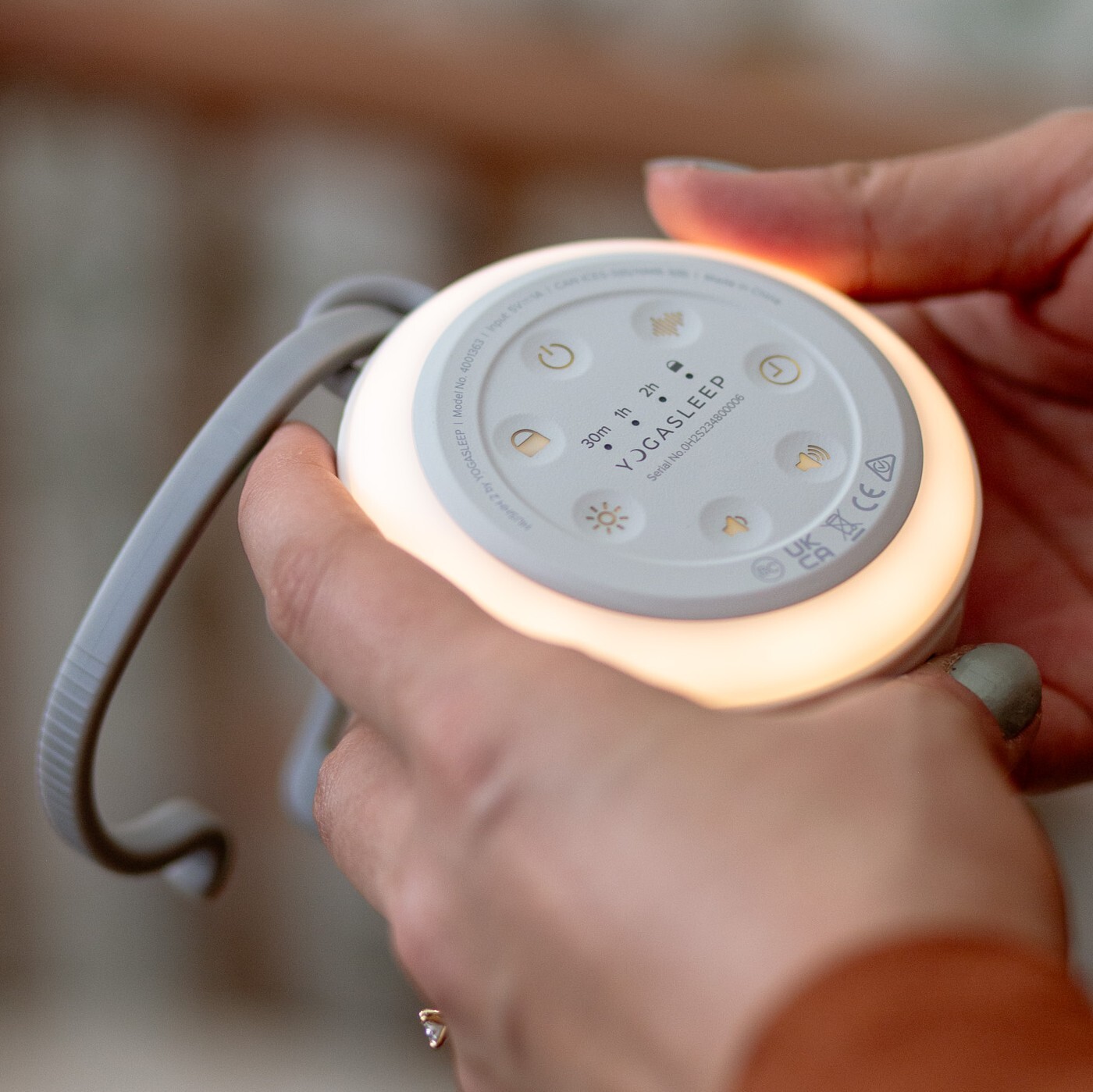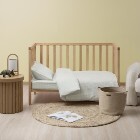Another of the big baby questions! If you read some baby books, you would have your baby in a strict routine from day one. At The Sleep Store, we believe a structured routine is far more appropriate for babies over 4 months of age.
Does My Baby Need a Routine?
Routine for Newborns
Newborns have generally not read the same sleep books as mum and dad, and often do not remotely want to follow a set schedule for when they feed and sleep....Trying to make your newborn fit into a routine can be stressful and unpleasant for both of you!
However some relaxed structure to your day will help you read your baby's cues and learn what your baby needs, when.
We believe that the most essential routine for a newborn is feed, play, sleep. This means feed your baby when you get her out of bed, then change her nappy and have a short awake time. Then swaddle her and pop her back to bed. Awake time for a newborn (including feeding) is no more than an hour, before you risk her getting over-tired.
Now your baby is over 4 months....
By the time your baby is 4 to 5 months old, we believe a more structured routine becomes useful for parents and baby.
Your baby needs to know what to expect and when to expect it...she needs to know she is going to get enough sleep and at the times she needs it.
A structured routine will really help you plan your day, and avoid you being out in the car right at the time your baby is likely to fall asleep. Quick naps in the car lead to catnapping, and your baby will quickly become over-tired.
If you know the times your baby will be sleeping, you can plan to either be at home for sleeps or take what you need for your baby to have a proper sleep when you are out. For example, if you need to go out first thing, be where you need to be by 9am. Then you can put your baby in her sleeping bag, have her dummy and white noise ready and have her in the buggy ready to sleep. Then be home by 1pm for her next sleep, rather than trying to go to the supermarket on the way home at 1pm...right when your baby will lose the plot from exhaustion!
Routines are also very helpful with getting your baby sleeping through the night. Babies who have no routine are often over-tired from being out and about, or not getting enough sleep in the day. Over-tired babies often have more broken sleep during the night.
Introducing solids is far less stressful too when you have a structured routine, as you know what to offer your baby at what time.
But won't a routine mean I am stuck at home?
We think quite the reverse is true! If you have no routine, how do you know when is a good time to go out? How do you know when to make an appointment or when you baby will be sleeping?
If your baby has set sleep times, you can be much more confident your baby is getting the day sleep she needs and you can go out at times she will be awake. or go out knowing when she needs to sleep and be prepared!
Early waking and catnapping
Both these issues can often by solved by using the right routine.
If your baby currently wakes very early and therefore has an early morning nap, this nap time can in fact be reinforcing the early waking. So gradually move the time of her first morning sleep back by 5 minutes a day, and see if the waking time also gradually gets later.
If your baby is being put down for naps too soon, she may not be tired...and only need a catnap.
Also if your baby is napping in the car at random times and for short periods, this too can result in ongoing catnapping.
Feeding to sleep
This is one of the main causes of ongoing catnapping and night-waking, as babies who are fed to sleep are generally not able to self settle at the end of a sleep cycle. Also as they fall asleep on mum, they will often wake if transferred to their cot as they are confused when they wake and mum is missing.
Using a structured routine will mean you feed your baby when she wakes, rather than before you put her to bed. This breaks the sleep association of feeding to sleep and your baby will learn she can fall asleep in her bed without relying on feeding to get to sleep.
Read more about teaching your baby to self settle
How do I get my baby into a routine?
-
First write down what you are doing now, and see if there is a pattern. A good starting point is noting the amount of time between your baby's feeds and how long she can stay awake for, as these are the essential elements of a routine.
-
See what time your baby generally wakes in the morning, as you may want to base your routine from there.
-
Research suitable routines for the age of your baby and the waking and feeding times you recorded. See below for links to some sample routines and books with routine information.
-
Read our information on weaning your baby off feeding to sleep if relevant.
-
Start the new routine when you can have a few days at home and see if your baby can manage the times suggested for feeds and sleeps in the sample routine. If she can't stay awake for that time, try the routine for younger babies and start with that.
-
You can also work on gradually increasing the space between feeds or sleeps, such as moving the times later by 5-10 minutes per day.
-
Accept that not every day will exactly fit the routine!!!
-
Accept that it may take a week or two before you and your baby settle into your new routine!!!
Possible Routines for Babies 4-12 Months
| 4-9 Months | 9-12 Months | |
| Wake & Feed | 7am | 7am |
| Solids* | 8am | 8am |
| Sleep | 9am | 9.30am |
| Feed | 11am | 11am |
| Solids* | Noon | Noon |
| Sleep | 1.00pm | 1.30pm |
| Feed | 3pm | 3pm |
| Nap | 4.30pm | Not needed |
| Solids* | 5.30pm | 5.30pm |
| Bath | 6pm | 6pm |
| Feed | 6.30pm | 6.30pm |
| Bedtime | 7pm | 7pm |
| Dreamfeed (BABY ASLEEP) | Approx 10pm | Not needed |
-
* Just omit the times for solids until these are introduced at 6 months or so.
-
Dreamfeeds are best done when your baby is ASLEEP, as this means she is not aware of having the feed or relying on it to get back to sleep.
-
If your baby normally wakes for a feed around this time, do your dreamfeed 15 minutes earlier.
-
To stop the dreamfeed, gradually bring the time forward by 15 minutes per evening until it is at about 8.30pm. Then drop altogether and see if your baby's sleep is effected.
Routines & Sleep Training
If you are about to start teaching your baby to self settle or are working on a sleep programme, we recommend also using a structured day time routine.





















